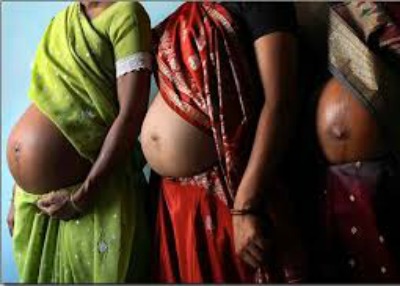Surrogacy: India and Pope Francis's call for a universal ban
The pontiff called the practice “deplorable" in his address to the Diplomatic Corps, demanding a total ban. In India, once the world surrogacy capital, the authorities have restricted its scope, but it is still allowed for close relatives. For Dr Pascoal Carvalho, a member of the Pontifical Academy for Life, this still puts women at risk of “potential exploitation”.
Delhi (AsiaNews) – Pope Francis yesterday called for a universal ban of surrogate motherhood in his address to the Diplomatic Corps accredited to the Holy See, calling it a "deplorable" practice.
The pontiff’s words are particularly significant for India where surrogacy has been subjected to major legislative changes in recent years.
Until the mid-2010s, India was deemed the "surrogacy capital of the world." The practice was legal and unregulated, attracting many couples from abroad.
Concerns about the potential exploitation of surrogate mothers and unethical practices did, however, prompt the Indian government to revise its stance on the matter.
Already in 2015, a directive was issued prohibiting prospective foreign parents from entering into surrogacy agreements in India.
This change was codified into law in 2020 with the Surrogacy (Regulation) Act, which restricted surrogacy services to Indian citizens and introduced regulations to protect the rights of surrogate mothers.
Then, in 2021, the Act was further revised, limiting surrogacy services to Indian couples who have been legally married for at least five years and can provide a certificate of proven infertility. In addition, the practice was limited to “close relatives”, making it harder to find a suitable surrogate mother. Further amendments in 2022 and 2023 tightened the rules.
The law now states that surrogate mothers must be married, have at least one biological child, and be between the ages of 25 and 35. Commercial surrogacy is outlawed allowing only "altruistic" surrogacy, while surrogate mothers can carry only one surrogate pregnancy in their lifetime.
Access to surrogacy today in India is legal only for couples who have been married for at least five years and between the ages of 23 and 50 for women and between 26 and 55 for men.
It is only allowed for couples who are unable to conceive a child after five years of trying or for whom the pregnancy is medically unsafe or could cause life-threatening conditions or serious permanent injury.
It is forbidden to pay the surrogate mother beyond reasonable medical expenses and insurance. Both the intended couple and the surrogate mother must obtain a certificate of suitability from the competent authority.
In March 2023, another amendment banned the use of donor gametes, but this was challenged in October before the Delhi High Court, which noted, however, that the "surrogacy industry" should not be encouraged in India – if left unchecked, it could become a billion-dollar business.
Despite the limits, the issue of surrogacy remains problematic from an ethical point of view. For Dr Pascoal Carvalho, Indian member of the Pontifical Academy for Life, “Any surrogacy is a moral offence”.
Such a “procedure involves means and techniques that are morally illicit. People are generally unaware of the moral implications of the technology involved,” he said told AsiaNews.
In his view, “people in general who think that surrogate mothers are doing good to families, are mistaken.” Even if surrogacy is limited to close relatives without commercial considerations, “These women could be exposed to great danger, especially in joint or extended families, such as in India, where relatives, children, and grandparents live together.”
“In such a situation, women could be pressured into surrogacy in favour of another infertile woman in the family,” he warns, while “the dignity of women is at stake because surrogacy regards women as commodities and instruments, like renting a machine, to produce babies.”
Ultimately, “Surrogacy has never been in favour of life. It is just a business with deceptive marketing strategies,” he laments. From this perspective, “A child is not viewed as a gift but as an item to be procured.”
01/12/2017 18:01
21/07/2009
26/02/2019 16:14







.png)










